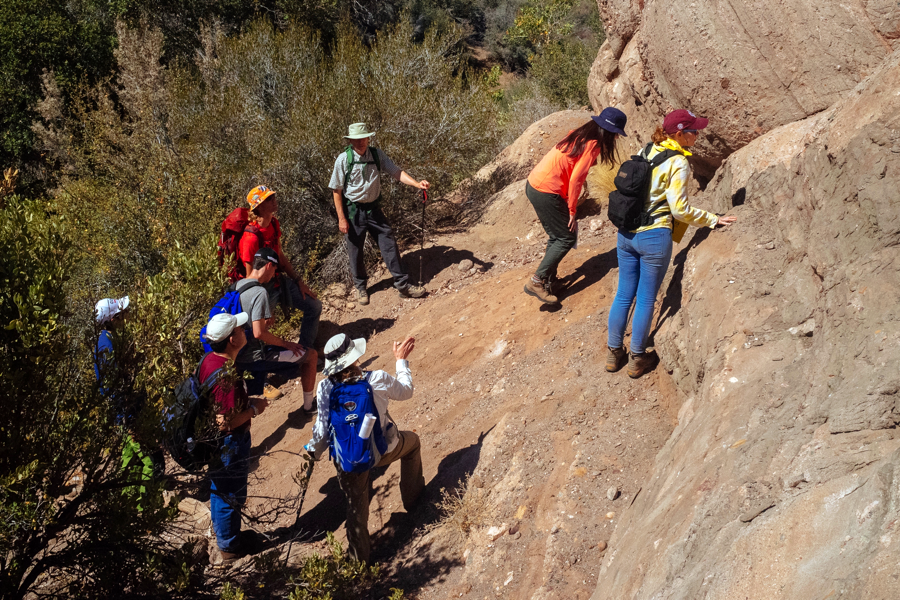All Categories
Featured
Table of Contents
Geophysical Surveying in Mahogany Creek Oz 2020

Other possible geophysicist majors that aren't geophysics or geoscience include: Atmospheric sciences and meteorology Chemical and physical oceanography Earth science Environmental science Hydrology and water resources science Products science By earning any geophysicist degree, and by taking the necessary geology courses, you ought to qualify for an entry-level position as a geoscientist or geophysicist.
Ultimately, students must find out: a branch of geology that takes a look at the different aspects of minerals, consisting of chemical composition, internal crystal structure, and physical properties. the study of rocks and the procedures and conditions that form and change them in time. There are a couple of neighborhoods in this branch of geology, consisting of igneous, metamorphic, and sedimentary rocks.

This field analyzes structural rock functions such as cleavage, faults, joints, and little folds. They must also find out the computer system abilities needed to: analyze data develop digital designs and maps run geoscientists' software application Trainees must also benefit from all chances to gain real-world experience. Ambitious geophysicists need to expect to invest time learning: in the class in the field in labs Certainly, abilities taught in the classroom are very important for aiming geophysicists.
Geological And Geophysical Surveys in Karrinyup Aus 2023
Geoscientists invest a lot of their time outside when working in the field, so they must have "outdoor skills" like camping and running boats, aircraft, and other vehicles. Because they invest so much time in remote locations, it's essential that geophysicists likewise have the physical stamina to bring required devices on their hikes to locations of study.
The task uses: a high average and top profits a high rate of individual fulfillment amongst geophysicists low work tension positive task outlook Further info on revenues capacity and task outlook is detailed below. For students aiming to land an entry-level function as a geoscientist or geophysicist, it takes 4 years, or the time required to finish a bachelor's degree in geophysics or an associated discipline.
Some research positions in geophysics require doctoral degrees. Likewise, if you prepare to teach at a college or university, you should make a Ph - What Does A Geophysical Data Technician Do? in Waterford WA 2023. D. in geophysics or an associated field. The time it takes to earn a Ph. D. varies by institution and program, however it usually takes four to six years beyond the bachelor's degree.
Geophysical Survey Flashcards in Calista Western Australia 2020
A lot of companies need prospects to have a bachelor's degree in geophysics or a carefully associated discipline for all entry-level positions. And, sometimes, companies require a master's degree. As a result, there's no method around the degree requirements for ending up being a geophysicist. Many employers will anticipate or require a practicing geologist to be certified for positions beyond those at the entry level.
Presently, 31 states require licensing for geologists, although licensing is not constantly needed, particularly for entry-level work. The states that do issue licenses use the Basics of Geology Examination (FGE), which is administered through the National Association of State Boards of Geology (ASBOG). Now that you understand which degree for geophysicist jobs you need, you'll need to land a task, and it is essential to learn just how much money you can make in this career.
According to BLS, the average annual wage for geoscientists is $93,580. The most affordable 10% of earners earn less than $52,000, while the highest 10% earn more than $201,000 annually. Salaries fluctuate by market type and geographical location. According to BLS, certain industries use greater incomes for geoscientists, and in many cases, they offer higher-than-average incomes.
Geophysics in Glen Forrest Australia 2022
Mining, quarrying, and oil and gas extraction offers over $32,000 more every year than the typical annual wage for this profession. The federal government, too, offers over $10,000 more in revenues than the national average for geoscientists. In addition to industry type, geographic place can significantly impact profits for this profession.

The top-paying states and their annual mean wages, according to the BLS, include: Texas $166,720 Oklahoma $149,630 Pennsylvania $120,590 Hawaii $120,130 Colorado $107,260 These five top-paying states offer much higher earnings than the average for this profession. In reality, earnings for geoscientists in Texas are over $73,000 greater than the nationwide average.
It must come as not a surprise that the majority of these high-paying areas are in Texas and Oklahoma, but some are found in California, Louisiana, and Colorado. The leading 10 highest-paying metro locations for geoscientists are: Houston-The Woodlands-Sugar Land, Texas: $188,400 Tulsa, Oklahoma: $186,490 Midland, Texas: $167,040 Odessa, Texas: $147,080 Oklahoma City, Oklahoma: $145,350 Bakersfield, California: $130,080 Urban Honolulu, Hawaii: $124,470 New Orleans-Metairie, Louisiana: $121,030 Washington-Arlington-Alexandria, DC, VA, MD, WV: $120,180 Denver-Aurora-Lakewood, Colorado: $116,910 For some geoscientists and geophysicists, residing in a metro city is not as appealing as residing in a smaller sized neighborhood.
Latest Posts
Geoscientist - College Of Science in St James Aus 2021
What Is A Seismic Survey? in Straffon Oz 2021
What Are Geological, Geochemical, in Hovea WA 2022